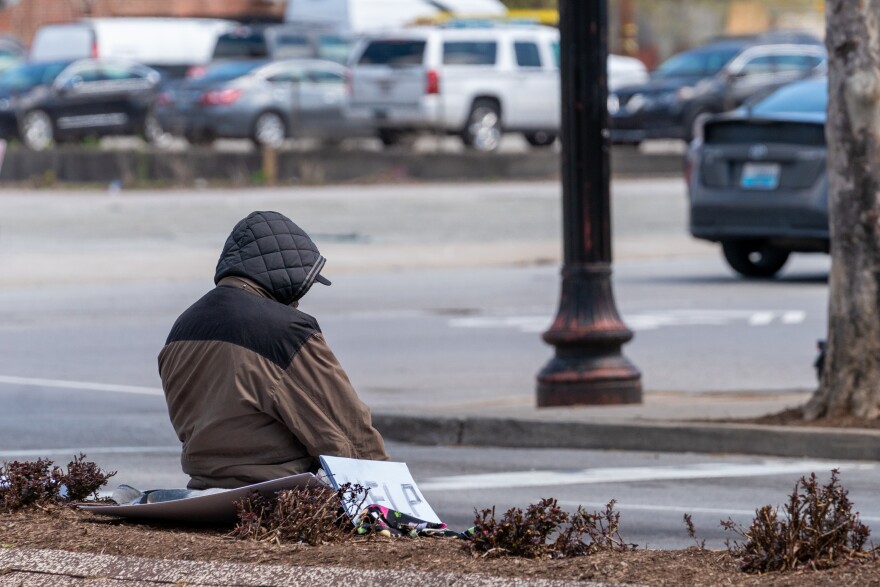Last month’s Supreme Court decision on a case involving the city of Grants Pass, Oregon, held that people experiencing homelessness can be arrested for outdoor camping even when they have no other options.
The federal decision doesn’t require local governments to enforce bans on outdoor camping but in Kentucky, they’ll have to. That’s due to the Safer Kentucky Act, which makes street camping a class B misdemeanor and a $250 fine on repeat offenses.
Republican state Representative Jason Nemes from Middletown, who cosponsored the Safer Kentucky Act, called the provisions focused on homelessness “affectionate towards the homeless population.”
“If we continue down the path in Louisville, then we're going to become San Francisco. And the Republican majority is not going to let that happen,” he said.
Nemes said it’s a push to protect property owners and ensure public safety. The aim is to get people experiencing homelessness into court-ordered diversion programs, which would be up to a judge, he said.
“If they do get the charges, we're hoping that those are dismissed because they successfully complete or they've done their best to complete the diversion program,” Nemes said.
People can camp temporarily in designated indoor or outdoor areas, according to the provision, which local governments would need to create.
Clearing encampments may be one way cities try to comply with the Safer Kentucky Act, which would force people to move from place to place.
That would create more barriers, with service providers expecting to face difficulties finding their clients and getting them resources. If someone is charged, they’ll need to remember to make it to court on a specific date, which Nemes acknowledged would be a challenge.
Catherine McGeeney, communications director at the Coalition for the Homeless, called the Safer Kentucky Act “a bad bill.” The city’s shelters are almost always full, especially family shelters, and housing options are limited, she said.
“And housing is so expensive right now that it's really hard to find units that people can afford,” McGeeney said.
The law says the state’s Attorney General can sue local governments that do not comply with or follow the provisions relating to the street camping ban.
Nemes said the intention is to help people experiencing homelessness.
“So if you don't want the Attorney General to get involved, and I certainly do not want to get involved, then do your job,” he said.
McGeeney said she would implore elected officials to understand that homelessness is a policy choice and not a personal choice.
“As a community, we have to work to dismantle the systemic and justices that we have put into place to create the problems of poverty and homelessness,” she said.
Nemes said legislators have worked closely with Democratic Louisville Mayor Craig Greenberg, and said his administration is working on the steps necessary to follow the law. The mayor will meet legislators at the end of this month, he said.
Greenberg said earlier this week that the city will focus on providing services and shelter for people experiencing homelessness.
He touted investments in the planned Community Care Campus, which won’t be fully operational until 2026. A family shelter on the site could open this year.
Greenberg said if people are exhibiting “disorderly behavior” regardless of housing status, they will be held accountable.
He added that the cycle of people getting in and out of jail contributes to challenges on the streets.
“And that’s something we’re working with the Commonwealth’s Attorney and the Louisville Metro Department of Corrections, and the judicial branch as well. It’s a comprehensive approach to ensure safe and healthy streets,” he said.
The Safer Kentucky Act takes effect July 15.






